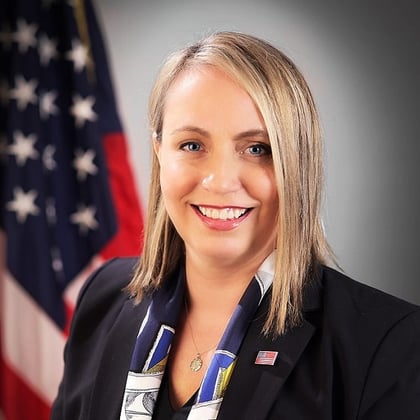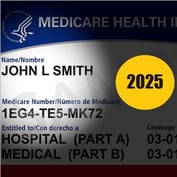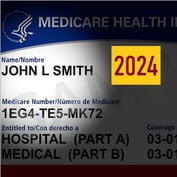What You Need to Know
- The Medicare Advantage error rate for claim denials was 18%.
- Some denials involved medical criteria not allowed by Medicare.
- HHS OIS effort found a 6.3% error rate for all types of payment transactions at original Medicare contractors around the same time.
Medicare Advantage plans blew more than 10% of the preauthorization denial and claim denial decisions investigators analyzed, according to officials with the U.S. Health and Human Services Office of Inspector General.
An HHS OIG team estimated that the plans studied were wrong about 13% of the preauthorization denials analyzed and 18% of the benefits payment denials analyzed.
Investigators based those estimates on an analysis of 250 prior authorization denials and 250 payment denials issued by 15 large Medicare Advantage coverage issuers during the first week of June in 2019.
Investigators found that plans overlooked documents or made other processing mistakes in some cases.
In other cases, plans used care management rules that conflicted with Medicare’s own clinical criteria.
A plan might have required a patient to get a CT scan before seeking an MRI, even though Medicare would have let the patient start with getting an MRI, or rejected a request for an MRI of an adrenal gland tumor because the tumor was very small, when Medicare sets no size limits on adrenal gland tumor MRIs.
The Centers for Medicare and Medicaid Services — the agency that oversees Medicare — could help by issuing new guidelines for use of clinical criteria in care management, updating audit strategies, and telling Medicare Advantage to be more careful, HHS OIG officials said.
What the HHS OIG Report Means
Republicans in Congress have generally supported the Medicare Advantage program in recent years.
Many Democrats in Congress have supported the Medicare Advantage program, but some Democrats say the program gives too many private companies too big of a role in Medicare, and some policy specialists who are concerned about the size of the federal budget deficit see the program as a good target for spending cuts.
The Committee for a Responsible Federal Budget has argued that Congress could squeeze $830 billion out of Medicare Advantage program spending over the next 10 years.
The new HHS OIG report has received widespread general-interest media coverage. It could cause headaches for Medicare Advantage program supporters as Congress seeks ways to pay for Ukraine aid, COVID-19 pandemic response and social program bills.
The Medicare Advantage Program
The Medicare Advantage programs gives private insurers a chance to offer comprehensive coverage that looks to the enrollee like an alternative to coverage from the “original Medicare” Part A and Part B programs.
Medicare Advantage and closely related programs cover 29 million of the 64 million people who now have Medicare coverage, according to CMS Medicare enrollment data.
About 14 million other enrollees use original Medicare together with a competing kind of private insurance product, Medicare supplement insurance.
Enrollees often pay little or nothing out of pocket for Medicare Advantage coverage, and they often get services left out of the original Medicare program, such as dental care and hearing care.
In exchange, Medicare Advantage plan enrollees may face efforts by plan managers to manage their use of care and encourage them to use doctors, hospitals and other care providers that have contracts with the plans.
Some enrollees, and some health insurance agents and brokers, say the plans’ care coordination efforts can lead to problems for patients.
But America’s Health Insurance Plans, which represents both Medicare Advantage plan issuers and issuers of Medicare supplement insurance policies, has reported that Medicare Advantage plan enrollees are 20% more likely to have an annual preventive care visit than original Medicare enrollees, and that plan enrollees with diabetes are 52% less likely to suffer complications.









 April 29, 2022 at 10:11 AM
April 29, 2022 at 10:11 AM











